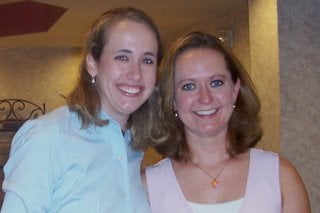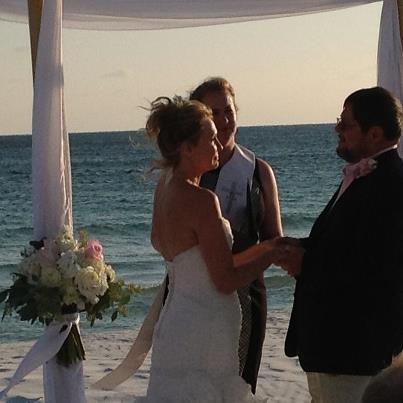 What do you do when the unspeakable happens to those you love?
What do you do when the unspeakable happens to those you love?
A month or so ago, a dear seminary friend, Rebekah who had recently lost a baby at 20 weeks shared this list on Facebook as a way to help people know how to care (brave and awesome of her!).
It was a handout that she'd shared in an adult education class in the church she serves in New York City.
I loved the list-- not only because it helped me understand where my friend was in her journey of grief, but because it was a great conversation starter for other friends who were going through their own difficult situations.
It is so easy, even as a person who wants to have a compassionate heart to get so consumed in your own stuff. It's easy to forget the grief is long journey. It's easy to forget that a person is more than just their pain, especially when their pain so raw at a particular time. It's easy to fear saying the "wrong thing" that you end up doing nothing at all.
So, here's some suggestions for some helpful and less helpful approaches.
Four categories of how we DON’T help; what not to say to people in pain:
--The “fix it” sayings: Resist any urge to jump to a conclusion for someone; folks don’t always need a solution, it feels dismissive of their pain.
--Sayings that can dismiss pain: Any sentence that begins with “at least”, “This too shall pass”, “Everything happens for a reason”.
--Bad Theology: when in doubt, don’t open your mouth. Do not say: “Everything is meant to be or "happens for a reason”, “When God closes a door, he always opens a window”, “God doesn't give you more than you can handle”, “It was God’s will”—(don’t ever say this unless you’re God), “God needed another angel” or anything that communicates that God takes the person away.
--“I know what you’re going through”: Don’t rush to share your own experience; it can minimize the pain of someone else who needs to share their own story and feelings. Finding commonality is helpful, but sometimes folks need you to listen. Especially don’t do this if the outcome was bad: “I know of someone who had that kind of cancer and she died”
Four ways of how we CAN help:
--Ministry of presence: Being present, letting them be angry/sad, telling them that it’s not ok that this happened and you’re a safe person for them to talk to.
--Intentional listening, without judgment and without an agenda. Listen with the intention of helping them think through their decisions. Don’t try to fix their problems. Be careful of interrupting.
--Doing the practical things: laundry, food, childcare, cleaning, etc.
--Remembering that they are more than their pain. They have another identity outside of their pain—they are more than someone with cancer, more than a widow, more than someone who lost a parent, a child. Some folks don’t want to enter a conversation and have everyone be sad for them all the time. They want to move on and have another identity.
Thanks, Rebekah! What might you add to the list?
I've seen one family walk through the fullness of "it was the worst of times and it was the best of times."
 Kristina's father wasn't just any person in my life-- he was a dear friend, a kind man who welcomed me warmly into his family gatherings, vacations and always ready with a good prank or joke.
Kristina's father wasn't just any person in my life-- he was a dear friend, a kind man who welcomed me warmly into his family gatherings, vacations and always ready with a good prank or joke.
He never took life too seriously and was the type of father you knew would one day turn into a wonderful grandfather when his three kids got around to having their own.
After hearing the news, I caught the first plane out-of-town to be with my friend and her family.
For several days. Kristina's parents' house was now full of loved ones, flowers galore and food enough to feed a southern army.
When it came time to sleep the night before the funeral, I asked where I should go. Kristina had joined her mom in the king sized bed in her room, now cold with grief and loss.
The next morning, Kristina, her mom and I got ready together in the adjoining bathroom for the funeral.
Kristina's mom had always called me "just another family member" so she said numerous times in between tears, "I'm so glad you are here."
I sat with the family at the memorial service.
We cried together rivers of tears.
When all was said and done, I slept (or pretended to sleep) on the floor next to them the following evening.
The three of us were together in grief that day. I will always remember.
 Then, several years later, the three of us gathered in a bedroom once again.
Then, several years later, the three of us gathered in a bedroom once again.
This time, nearly 8 years later, we sat around in a bedroom for a completely different reason, though.
Kristina's mom was getting married again. She was the matron of honor and I was the minister.
And a new man was in the room with us-- a man who would be her new husband, a kind and gentle and loving man, a wonderful addition to this already wonderful family.
As I watched Kristina help put on her mom's white dress and make sure her hair was perfectly aligned and her necklace was on straight, I couldn't help but have my mind go back to that moment when the three of us were in a bedroom together many years ago.
But yet on this day, I saw this mom say with her bright smile:
"Yes, it can. It really can. Life can be beautiful if you give it time." Happiness can come, she declared to the world if you hang on to hope!
And what a testimony this weekend was for me-- when life is rocky, just hang on.
For just as bad times seek to destroy us, the good comes too! I'm glad I'm around to see what comes next-- both the sorrow and the joy that will be.